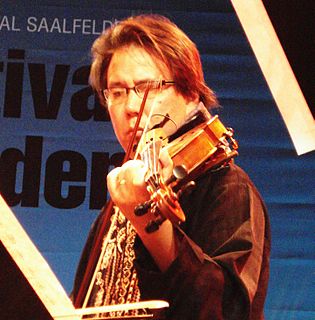A Quote by Melissa Leo
To play someone when the character masks their own emotions, doesn't understand their own emotions, has no release for their own emotions, and yet is full of emotion - that is a much harder character to play than someone who has somewhere to put it.
Related Quotes
Pride is the recognition of the fact that you are your own highest value and, like all of man's values, it has to be earned-that of any achievements open to you, the one that makes all others possible is the creation of your own character-that your character, your actions, your desires, your emotions are the products of the premises held by your mind.
How do I control my emotions? How do I stop getting angry so often, or how do I stop being sad? And I think there's a really important distinction to understand is that you can't completely control your emotions. What you control is your reaction to your own emotions. And a lot of people don't ever make that separation for what goes on with them.




































